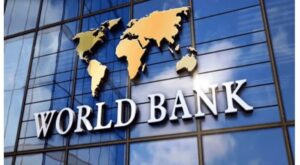World Bank Approves $1.57 Billion for Nigeria to Strengthen Health, Education, and Power.
The World Bank has approved a total of $1.57 billion in financing to help Nigeria enhance its human capital through improved healthcare, education, and power infrastructure. Announced on September 30, 2024, this funding aims to tackle challenges that have long hampered Nigeria’s development by focusing on women, children, and adolescents, while also addressing environmental issues like floods and droughts.
Breaking Down the Support
The financing will be channeled into three key programs:
- HOPE-GOV ($500 million) – Aims to address governance issues that affect the delivery of essential services in health and education.
- HOPE-PHC ($570 million) – Focuses on strengthening primary healthcare services.
- SPIN ($500 million) – A project designed to improve dam safety and irrigation, which will mitigate the effects of climate change while supporting agricultural and energy sectors.

Improving Education and Healthcare Delivery
The HOPE-GOV and HOPE-PHC programs are primarily aimed at improving basic education and healthcare services. These two areas have been identified as critical to improving Nigeria’s human capital and lifting millions out of poverty.
According to the World Bank, these programs will provide better financial management and human resource allocation across these sectors, ensuring that funds are used more effectively to deliver services. This includes improving the transparency and accountability of funding for education and healthcare, and enhancing the recruitment and training of teachers and healthcare workers across all levels of government.
For example, the HOPE-PHC program is expected to benefit 40 million people in Nigeria, particularly women and vulnerable populations. By focusing on reproductive, maternal, newborn, child, and adolescent health, the program aims to significantly reduce maternal and child mortality rates in the country. The project will be financed by a $500 million International Development Association (IDA) credit, with an additional $70 million in grants from the Global Financing Facility for Women, Children, and Adolescents (GFF).
Contributions also come from other global stakeholders like the UK’s Foreign, Commonwealth & Development Office (FCDO) and the Children’s Investment Foundation Fund (CIFF), aimed at closing the healthcare funding gap and ensuring sustainable financing for essential family planning services.
Supporting Power and Irrigation Projects
The SPIN (Sustainable Power and Irrigation for Nigeria) project will help protect Nigerian citizens from the adverse effects of climate change by improving dam safety, enhancing water management, and expanding irrigation. This project will directly benefit around 950,000 people, including farmers and livestock breeders, by increasing access to reliable water supplies and improving agricultural productivity.
In addition, the SPIN project will develop a master plan for hydropower, paving the way for a structured public-private partnership for future energy projects. This could help Nigeria generate more hydropower, contributing to the country’s efforts to diversify its energy sources and provide reliable power for its citizens.
Long-term Benefits for Nigeria’s Human Capital
According to Ndiamé Diop, the World Bank’s country director for Nigeria, these investments are crucial for improving the employment opportunities, productivity, and overall economic prospects of millions of Nigerians. By addressing the critical areas of health, education, and power, the financing will play a key role in reducing poverty and improving the lives of vulnerable populations, particularly women and girls.

Diop emphasized that the World Bank is committed to working with the Nigerian government and other stakeholders to deliver these projects successfully.
Social Media Reactions:
- @naijalivewire: “This World Bank funding is exactly what Nigeria needs to improve healthcare and education. Let’s hope it gets used effectively!”
- @healthforallnigeria: “So excited for the HOPE-PHC project! 40 million people, especially women and kids, will finally get better healthcare!”
- @powerforchange: “The SPIN project could be a game-changer for Nigerian farmers. More reliable water means better agriculture and food security.”
- @eduforafrica: “Education reform is LONG overdue in Nigeria. Hopefully, this new World Bank program will make a real difference.”
- @femihustle: “Governance issues have held back health and education for too long in Nigeria. $1.57 billion could be the push we need!”
- @naijapowerwatch: “Hydropower is the future for Nigeria! The SPIN project will help us tackle floods AND boost energy generation.”
- @africadaily: “This is huge for Nigeria. Better health services, more schools, and reliable power could transform lives across the country.”
- @climateactionafrica: “Climate resilience is key for Africa. SPIN will help Nigeria combat floods and droughts, ensuring water security for years to come.”
- @official_nigeria: “With World Bank’s help, our kids could finally have access to quality education and healthcare. Nigeria’s future just got a lot brighter!”
- @futurefornigeria: “This funding will improve the lives of millions, especially in rural areas where healthcare and education are lacking.”
- @afrotrend: “A step in the right direction! World Bank’s $1.57bn to strengthen health, education, and power sectors is a positive move for Nigeria.”
- @farming4future: “SPIN project will help Nigerian farmers grow more crops, get reliable water, and contribute to the nation’s food supply!”
- @policywatchNG: “Nigeria’s development challenges need real solutions. World Bank’s initiative is a great start for human capital investment!”
- @wecareNG: “With this much-needed funding, we can finally tackle maternal and child mortality. Big win for Nigeria!”
Conclusion
The World Bank’s approval of $1.57 billion in financing marks a significant opportunity for Nigeria to improve its healthcare, education, and power sectors. By addressing key governance issues and focusing on human capital development, these funds have the potential to significantly uplift the most vulnerable populations, while also enhancing the country’s resilience to climate change.
Join Our Social Media Channels:
WhatsApp: NaijaEyes
Facebook: NaijaEyes
Twitter: NaijaEyes
Instagram: NaijaEyes
TikTok: NaijaEyes








































